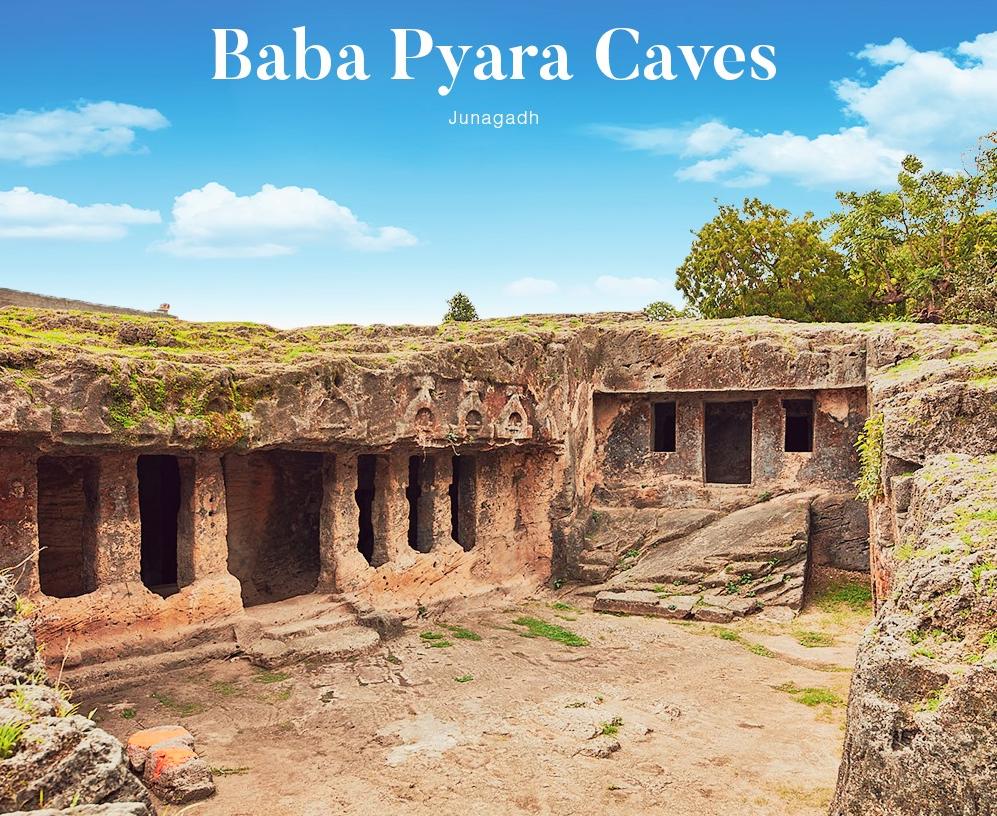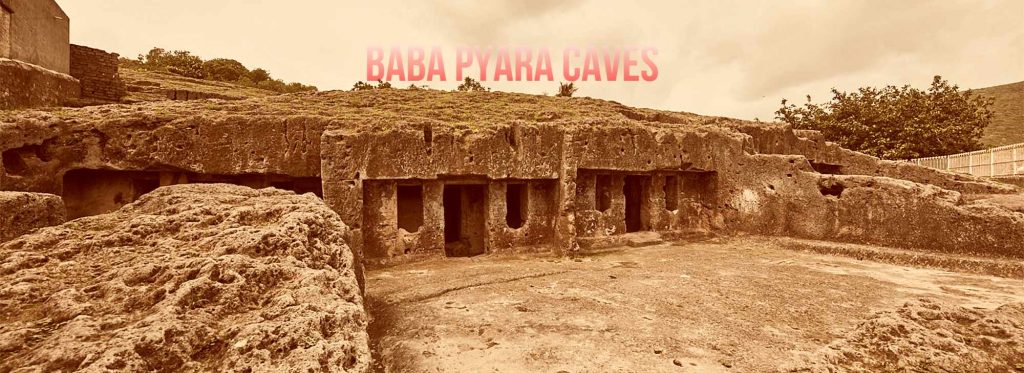About Baba Pyara Caves
Baba Pyara caves (also known as Bava Pyara caves) are an example of ancient man-made caverns. The caves are a part of the Junagadh Buddhist Cave Groups situated in the eastern part of Junagadh of the Indian state of Gujarat. Bava Pyara caves contain artworks of both Buddhism and Jainism.
These caves are arranged in three lines; the first line on the north-facing southwards, the second line on the south from the east end of the first line, and the third line runs back of the second line in west-north-west. The second line has a primitive flat-roofed chaitya cave having simple cells on either side of it with extra cells on the north and east of it.
History Of Bava Pyara Caves
The Bava Pyara caves were visited by James Burgess, an English archaeologist and founder of The Indian Antiquary. He concluded that they were affiliated with both Buddhism and Jainism. According to Burgess these caves were initially built for Buddhists bhikkhus and were in a later period occupied by Jain ascetics. He was not certain about the exact age of the ancient caves. One fragmentary inscription was found in the Bava Pyara cave that affirms its affiliation to Jainism because one term in that inscription is exclusively used by Jains. The inscription was read as “केवलज्ञान संप्राप्तानां जीतजरामरणानां.
Junagadh Buddhist Cave Group consists of three separate sites namely Khapra Kodiya Caves, Baba Pyare Caves, and Upperkot Caves. Baba Pyare Caves are situated below the Southern walls of Uperkot Fort. Scholars believe that these caves were constructed during the Satavahana regime in 1st – 2nd century AD as the architecture of the caves shows the influence of the Satavahanas and Graeco-Scythian periods.
This group has 13 caves and was carved 45 meters long. These caves are arranged in three lines. The first line on the north, the second line on the south, and the third line run back of the second line. The northern part of Baba Pyare Caves contains four caves. The southeastern group of Baba Pyare Caves has ‘Chaitya’ and a spacious court for meditation. These caves contain artworks of both Buddhism and Jainism as these were initially built for Buddhist monks and were in a later period occupied by Jain ascetics.
Baba Pyara caves have been cut into a rock that is approximately 150 ft high. The carvings of Baba Pyara caves connected with Buddhist symbols adorn the walls at Baba Pyara and are a source of teachings and works of Gautama Buddha.
Things to see at Baba Pyara Caves
- The large chaitya hall and court in Baba Pyare
- The unique water tank structure in Khapara Kodia
- The floral designs on the walls of Baba Pyare
Timings Of Baba Pyara Caves
8 AM – 6 PM
How to reach Baba Pyara caves
One needs to go to Junagadh to visit the Baba Pyara caves. Private and state bus services are available from different junctions in the state.

